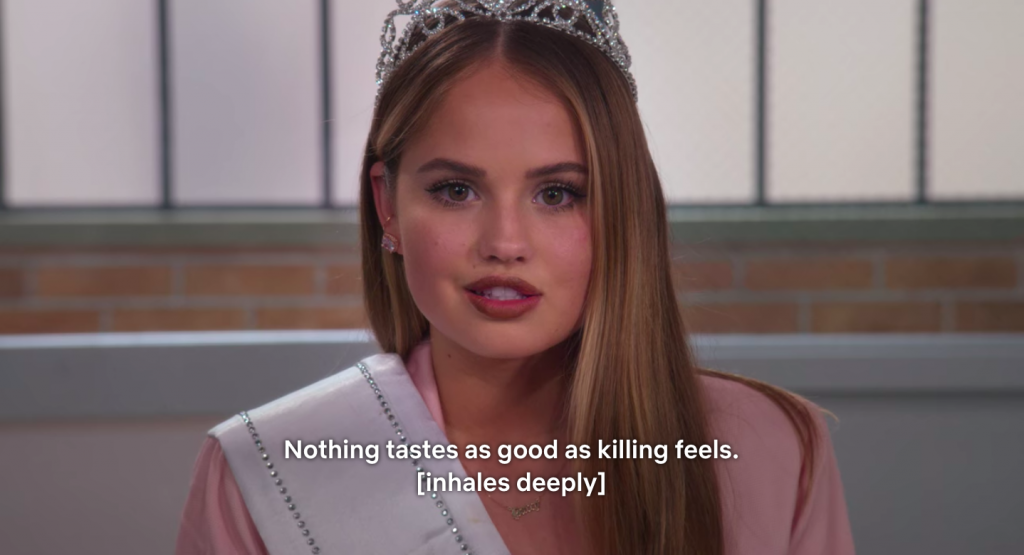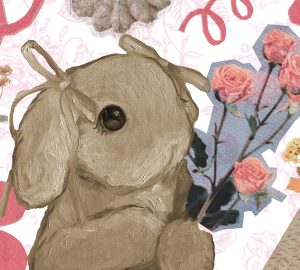‘Insatiable’: the deep, the dumb and the dreary
On Oct. 11, “Insatiable” returned to Netflix for a second season, bringing with it 10 episodes of complete and uninhibited mayhem.

In “Insatiable,” Debby Ryan plays Patty Bladell, formerly nicknamed “Fatty Patty,” who, after losing weight, finds herself in the world of beauty pageants while struggling with body image problems and eating disorder. After the controversy surrounding its first season, it’s safe to say viewers didn’t know what to expect of season two. The trailer gave just shy of enough away: after the grisly murder that ended season one, Patty returns to the pageant scene a murder suspect, reiterating that even though she is slim and attractive, her life had not gotten any better. The whole affair promises to be sordid.
For my part, I was pleasantly surprised at season two’s efforts at shedding light on the psychology and struggles of eating disorders. For the first time, viewers get a glimpse of what happens inside Patty’s mind, the way she craves food and the tremendous guilt that eating gives her.

And, unlike season one, which treats Patty’s disorder either as depravity or the butt of the joke, season two shows the people surrounding Patty offering her help and advice. But, being a dark comedy, the show turns this positivity on its head as every single piece of advice, however well-intentioned, turns out to be utterly useless.
Throughout the season, there are certainly moments when we feel and root for Patty, a girl burdened by just about everything one can be burdened with – daddy issues, abandonment issues, bulimia, suspicion for murders she didn’t commit, cover-ups of murders she DID commit, and even boyfriend problems. Underneath the crazy plot twists and satirical homicides, the show is “really about good people making bad decisions” due to “the profound emptiness down deep in [their] soul that is impossible to satisfy,” as explained by Lauren Gussis, creator of the show.
It is this insatiable emptiness that eats up Patty every time she does something wrong, turning her invariably to her addictions, whether it be food, sex, or murder, to make her feel whole. No matter how exaggerated the satire is, there is certainly something viewers can relate to. The rashness and irrationality of being vulnerable is part of being human. For those struggling with addictions, eating disorders or depression, the fear of being abandoned and misunderstood also hit home, with the show exploring how in our vulnerable state of mind, we always seem to perceive others as shallow and ignorant of our problems. This the viewers can sympathize with fully.

But other than these profound insights, the rest of the show falls flat. Most of the jokes were slapstick, many admittedly chuckle-worthy, but many overplayed and uninteresting. Despite its numerous plot twists and its clear ambition to be bold and revolutionary, “Insatiable” doesn’t feel very distinguished from other teen-revenge shows. The transformation of Patty from underdog to vengeful beauty is not exactly fresh, and neither is her personality: defensive, obsessive, and fascinated with the discovery of murder. Worse, the good-girl-gone-bad-under-dire-circumstances trope frames Patty’s rashness as reactions to outer evils and diminishes the detrimental effects of her insecurities, something the show has so laboriously built up only to let go to waste.

Still, the cast is great and the show is undeniably entertaining, and I do sincerely hope it will be renewed for another season. From the setups of season two, fans are excited to see how Homicidal Patty will turn out: Who else will she take down? How low will she go? As for me, I only hope that whatever killing lies ahead, it would shed light once and for all on not just the consequences but the causes of the insatiable rage of Patty.
























